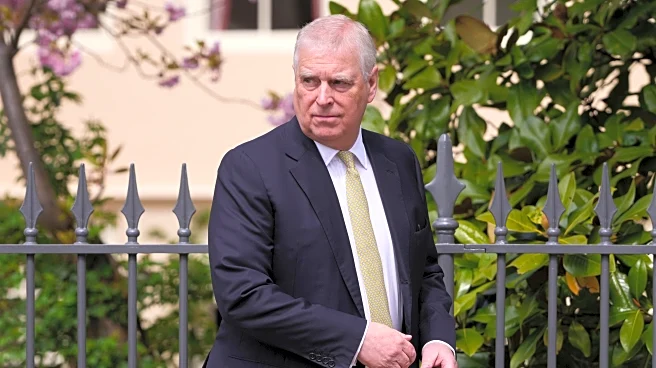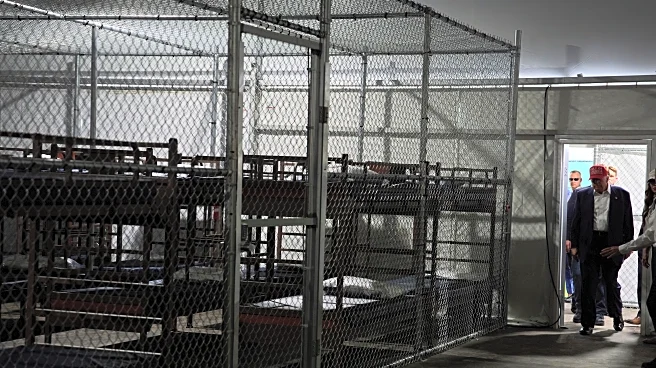What's Happening?
Lithuanian President Gitanas Nausėda has condemned the violation of Lithuania's airspace by Russian military planes, describing it as a blatant breach of international law and territorial integrity. The
incident occurred on Thursday evening when two Russian aircraft, identified as a SU-30 fighter jet and an IL-78 refueling aircraft, entered Lithuanian airspace for approximately 18 seconds. Lithuania's foreign ministry plans to summon Russian Embassy representatives to protest the violation. Russia's Defense Ministry has denied the incursion, stating that their aircraft adhered to their flight paths during training exercises over the Kaliningrad region. This event adds to the growing concerns in the Baltic region over Russia's military activities, especially in light of the ongoing conflict in Ukraine.
Why It's Important?
The airspace violation by Russian military planes underscores the escalating tensions between Russia and NATO member states in the Baltic region. Such incidents raise concerns about the security and stability of the region, potentially testing NATO's defensive capabilities and response strategies. The Baltic nations, already on high alert due to Russia's actions in Ukraine, view these violations as provocations that could lead to further military confrontations. The incident highlights the importance of strengthening European air defense systems and maintaining vigilance against potential threats. The response from Lithuania and NATO allies will be crucial in determining the future security dynamics in the region.
What's Next?
Lithuania's planned diplomatic protest against Russia may lead to further diplomatic engagements or escalations between the two countries. NATO's response to this incident will be closely watched, as it could influence future military and strategic decisions in the region. The incident may also prompt discussions among EU leaders about enhancing collective defense measures and readiness against external threats. Continued monitoring of Russian military activities in the Baltic region will be essential to prevent further violations and ensure regional stability.










